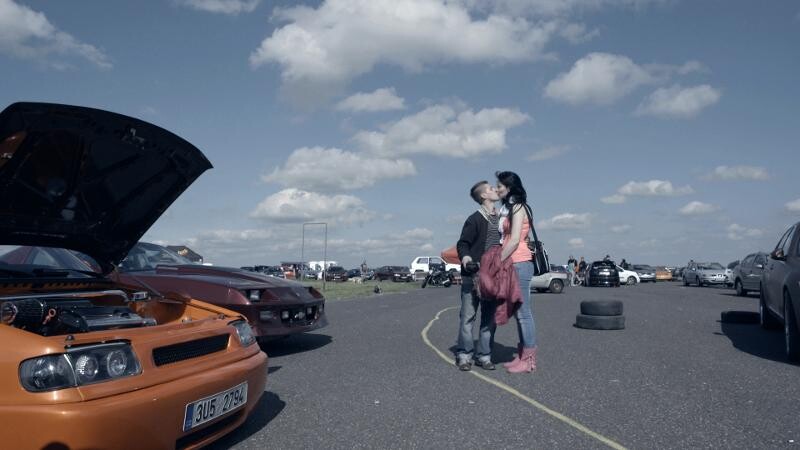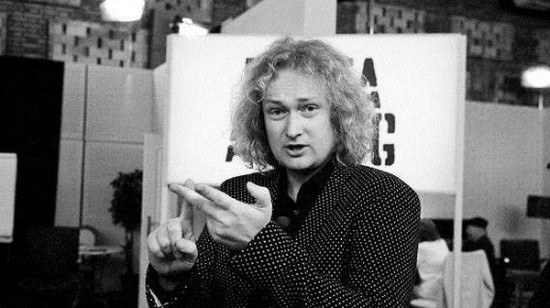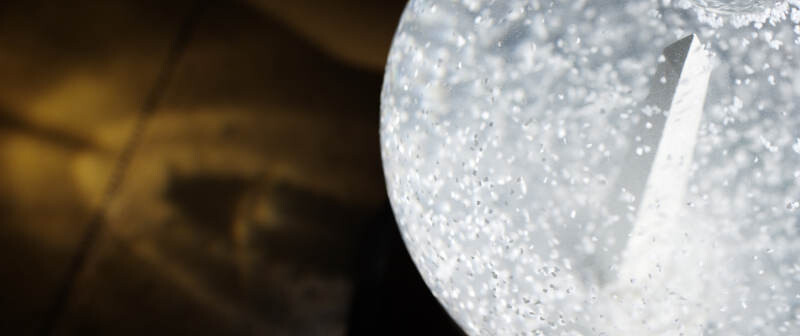I Feel Anxious in South Bohemia
“Even political and social topics have an apolitical dimension which interests me the most. Foremost, I try my best to make my films fragile and ambiguous,“ says Martin Dušek in regard to his new piece, Into the Clouds We Gaze (K oblakům vzhlížíme), which competed at the festival in Karlovy Vary and won the main prize in the competition section Czech Joy at the Jihlava film festival.
One of the projects you are currently working on is a feature film. Is it your first attempt at a feature film?
Yes. It is a musical called Gaston, in which actors will play seals in their real environment.
Even the piece Into the Clouds We Gaze has an evident narrative structure that is more typical for a feature film. The film has a real beginning, middle and end.
I think all documentaries should have this.
It is clear, however, that the narrative breaks, which happen in the film, occurred spontaneously. At least one of the differences between documentaries and fiction is that you can plan better when it comes to the plot of a feature film.
This is very frustrating about documentaries. You are always on edge, that your character will refuse you and refuse to let you film what you are interested in. Each film begins with a thought that pulls the trigger, an insight, a feeling that you try to rely on through concrete stories. I have to respond very quickly, be prepared with a variety of backup options.
What was the feeling or thought that stood at the beginning of the film, Into the Clouds We Gaze?
A long time ago, somewhere here in northern Bohemia, I was driving my old Volvo with pop up lights when a guy driving a Škoda one-hundred-twenty overtook me. He had rebuilt it to resemble a Toyota Supra just like in the movie Fast and Furious. We chased each other for a while and he sparked an interest in me. He was from somewhere around Stráž pod Ralskem, where uranium is mined. I was intrigued how he was trying to improve, pimp his life through his car. Then I started going to car tuning meetings, where I saw a lot of people like that. They engage with each other in an atmosphere which has a certain visual appeal, meanwhile it hides the total emptiness and futility, from which one has a feeling of melancholy.
Why did you pick Ráďa as your main character?
He has such a precarious, unstable existence. He does not know how to vote, he can’t affect anything, doesn’t know whether he’ll get a job or not... He holds on to his car, but he is not even capable of properly fixing it up. Ráďa really captures the spirit of northern Bohemia: oversized favelas around ponds, a weird industrial area full of weeds. Ráďa and others who appear in the film are creatures coming from this niche.
How were you able to observe him so closely? There is no hint of the presence of a film crew.
They wore microphones. Cranes were used to shoot from a bird’s eye view.
Did you ask the protagonists to repeat something they said on camera?
Perhaps I did sometimes. But it was never something different from what would have happened naturally. It was important to select a good site for the camera because it was not mobile enough. It was a technical-creative decision to shoot mostly off a tripod, because we were using a fixed lens, which has to be unscrewed to change and it takes time. Therefore we could not change the focal length often. The decision was a positive one – a specific visual style was created that way. We always found a suitable site for the camera with cameraman Lukáš Milota, from which we got shots that had some kind of expressive and aesthetic value. We then asked our characters who wore the mics to just exist in that setting.
I liked how the film works with different motifs that characterize the area of northern Bohemia. The film is only seemingly “about car tuning“.
Understandably I like it when a film has multiple layers. When it has a level of entertainment, a story that one can follow; but there are other issues behind it. My colleague Provazník always said that this approach reflects my North Bohemian origin. I don’t like it one bit in South Bohemia- I’m not curious about any lakes surrounded by reeds and storks along with villages with baroque scrolls on farms. I always like it best in northern Bohemia – somewhere between Teplice and Ústí, where one feels that this is where the different layers meet: the older civilization, which had its original architecture, a country which was overrun by the current one with which it is now entwined. It is interesting to think about it and peel back layers. Underneath it all is a layer of brown coal, which someone from up above wants to mine.
|
|
Martin Dušek (1978) graduated in TV journalism. He also studied Documentary Filmmaking at FAMU for a short time. He is the creator of television reports and documentaries for the multicultural broadcasting of Czech Television, in which he focused mainly on the Sudetenland environment. His feature-length documentary debut film was A Town Called Hermitage (Poustevna, das ist Paradies, 2007). Dušek is the three-time winner of the Czech Joy section, a competition of Czech documentaries at the Jihlava IDFF. |
This interview was published full-length in Czech in the festival newspapers IDDF Ji.hlava, dok.revue F03.
Translated by Floriana Skorulska




